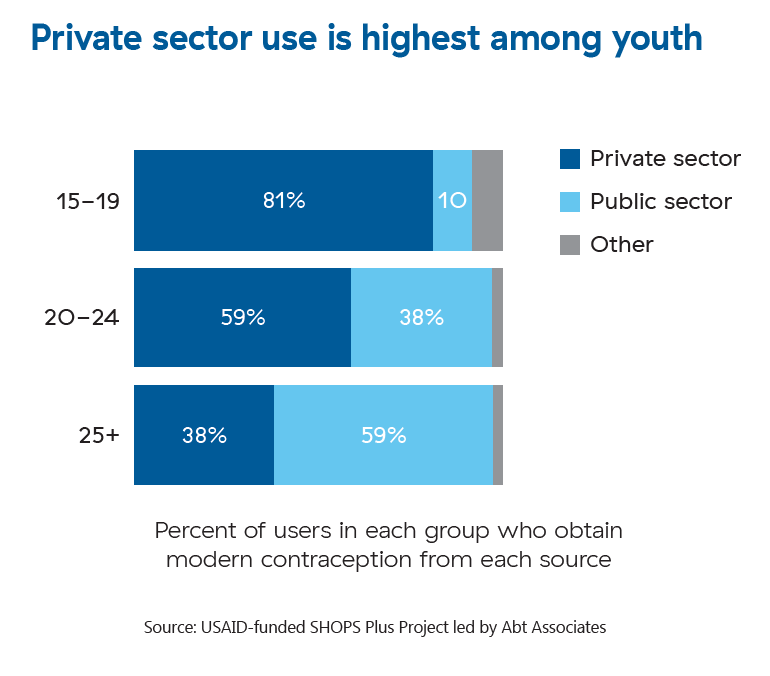Expanding family planning access and choice in Nigeria: What the data says
 Nigeria’s private sector is well positioned to increase access to contraception. There is a high use of the private sector among youth—the country’s largest population group—and the government has committed to further investing in this group, according to the 2020–2024 Nigeria Family Planning Blueprint.
Nigeria’s private sector is well positioned to increase access to contraception. There is a high use of the private sector among youth—the country’s largest population group—and the government has committed to further investing in this group, according to the 2020–2024 Nigeria Family Planning Blueprint.
There is much variation in where women obtain contraception based on which method they use, where they live, whether or not they are married, their age, and their wealth. Download a new brief to learn more.
Condoms remain the most common method of modern contraception, while implants have grown in popularity. Almost all implant and IUD users, and most injectable users, now obtain their method from public sources. The private sector share of the contraceptive market has decreased since 2013, though it continues to be the dominant source for condom and pill users.
Potential reasons for these shifts between sectors include the public sector’s successful donor-supported implementation of the national task shifting and task sharing policy, which allows community health extension workers to provide injectables, implants, and IUDs.
The Nigerian government aims to expand its task shifting and task sharing policy to private providers (including pharmacies and proprietary medicine vendors), update regulations on private sector contraceptive provision, and improve mechanisms for private sector data reporting. The government also intends to develop a private sector engagement plan to increase domestic investment for family planning.
These efforts by the Nigerian government could improve the sustainability of family planning programs, strengthen the knowledge and skills of private providers, and increase the availability of affordable products.
View findings and implications in a new brief.
Read about trends in where women obtain their contraception from other countries.
Read lessons from the SHOPS Plus project’s Nigeria family planning program.